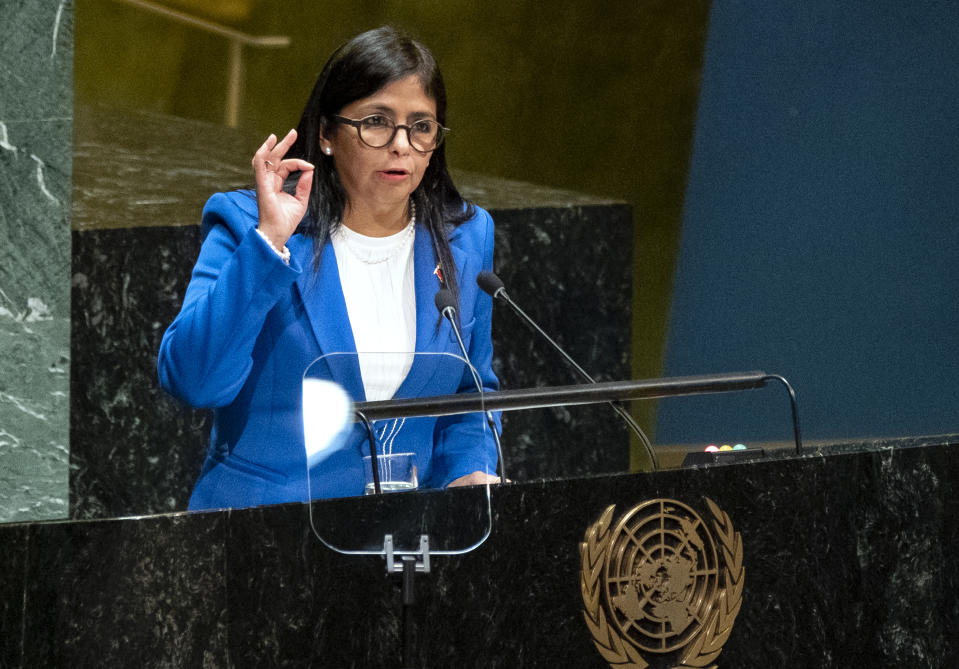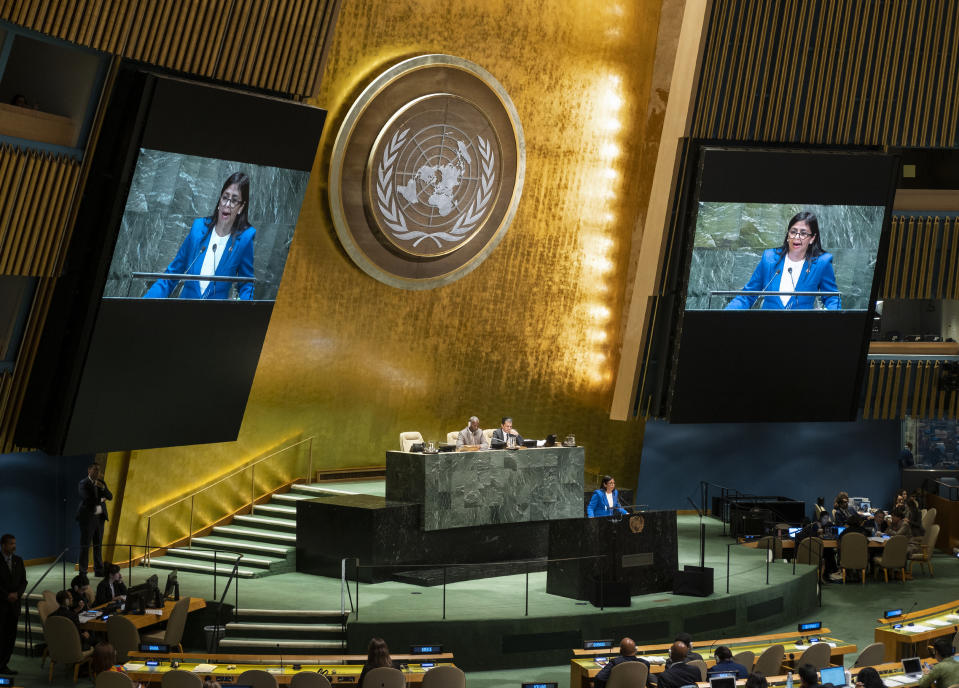UNITED NATIONS (AP) — Venezuela's vice president condemned the U.S. and more than 50 other governments that have recognized an opposition leader as her nation's rightful president, calling it the "worst mistake in the diplomatic history of these countries."
Delcy Rodríguez told the U.N. General Assembly on Friday that she came on "behalf of the only Venezuela," a reference to a rival delegation of diplomats that opposition leader Juan Guaidó sent to the annual gathering of world leaders.
She condemned U.S. sanctions "focused on strangling the Venezuelan economy" but made little reference to years of hyperinflation, power outages and food and medicine shortages that have driven more than 4 million people to flee the once relatively prosperous country. She later told reporters that the number — a U.N. estimate — "is a lie."
Venezuela's turn at the General Assembly podium came at the end of a week when the U.S. and other countries tried to ramp up efforts to pressure President Nicolás Maduro to step aside and allow for new presidential elections. Guaidó and his international backers say Maduro's 2018 re-election was fraudulent, largely because his top opponents were barred from running or exiled.
The latest setback for Maduro came Friday when the European Union slapped sanctions on seven members of Venezuela's security and intelligence services on suspicion that they are involved in torture and other abuses. That raised to 25 the number of people subject to EU asset freezes and travel bans over the crisis in Venezuela.
But that fell short of the sweeping action that Venezuela's opposition has sought from the EU, including efforts to go after any assets Maduro has in Europe.
"We need more pressure," Julio Borges, Guaidó's top foreign adviser, said at a news conference at the Venezuelan consulate, which is controlled by the opposition. "They know perfectly well that Maduro is the one who has slammed the door at any kind of solution to the economic, social and political crisis."
The EU fears that a stronger confrontation with Maduro could wreck the possibility of a negotiated solution. Maduro halted Norway-backed negotiations with the opposition last month, citing new U.S. sanctions.
The toughest action came Monday when the U.S. and more than a dozen Latin American countries agreed to investigate and arrest Venezuelan government officials and associates suspected of drug trafficking, money laundering and financing terrorism — acting under the Cold War era Rio Treaty invoked for the first time since the Sept. 11, 2001, terror attacks.


